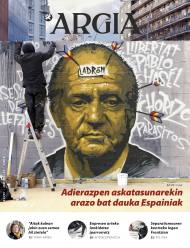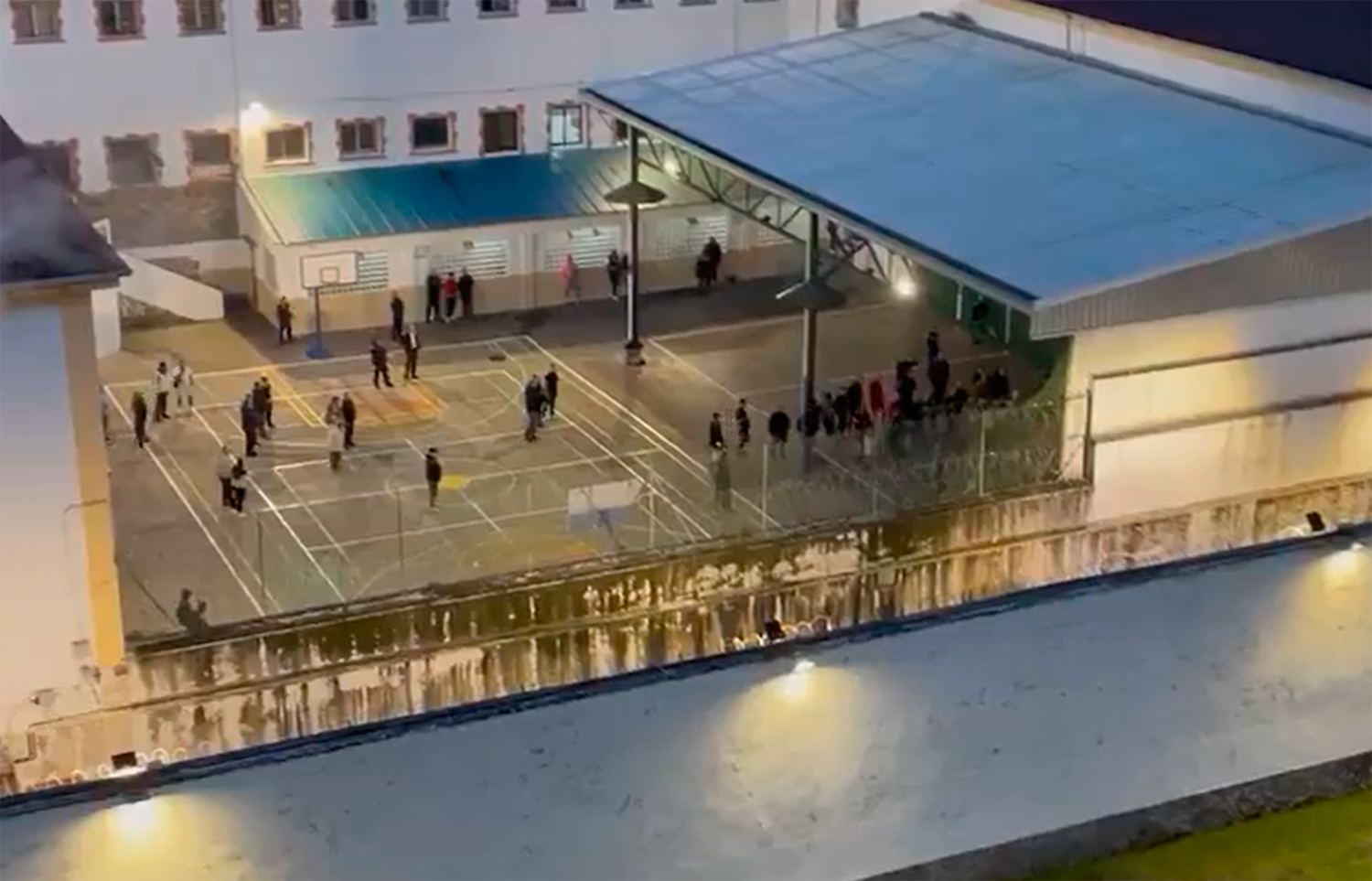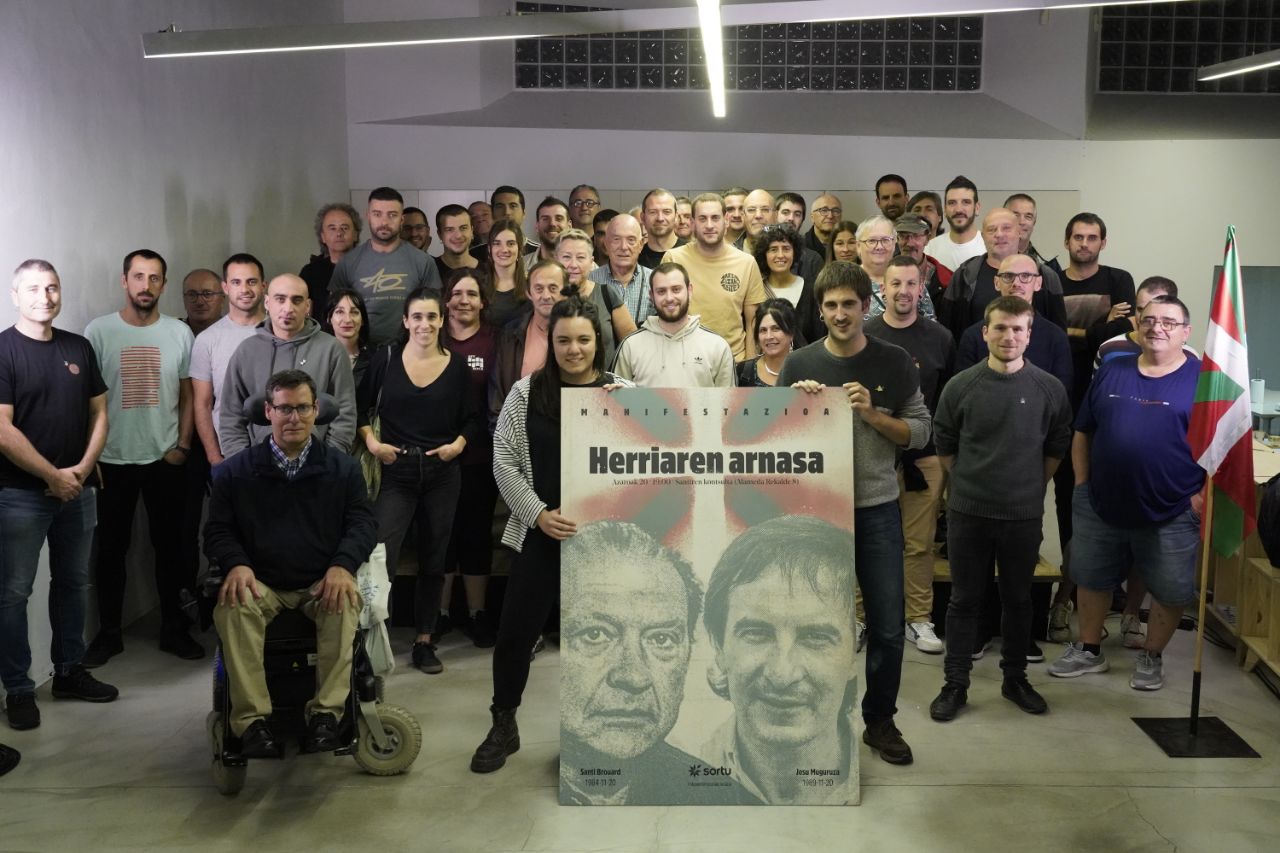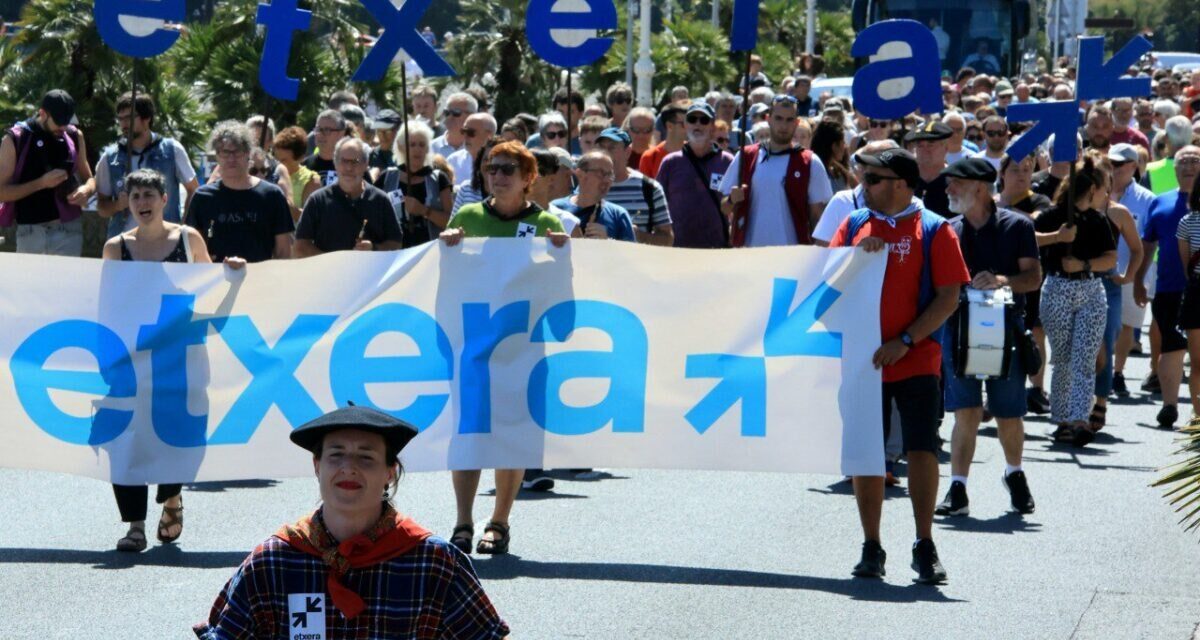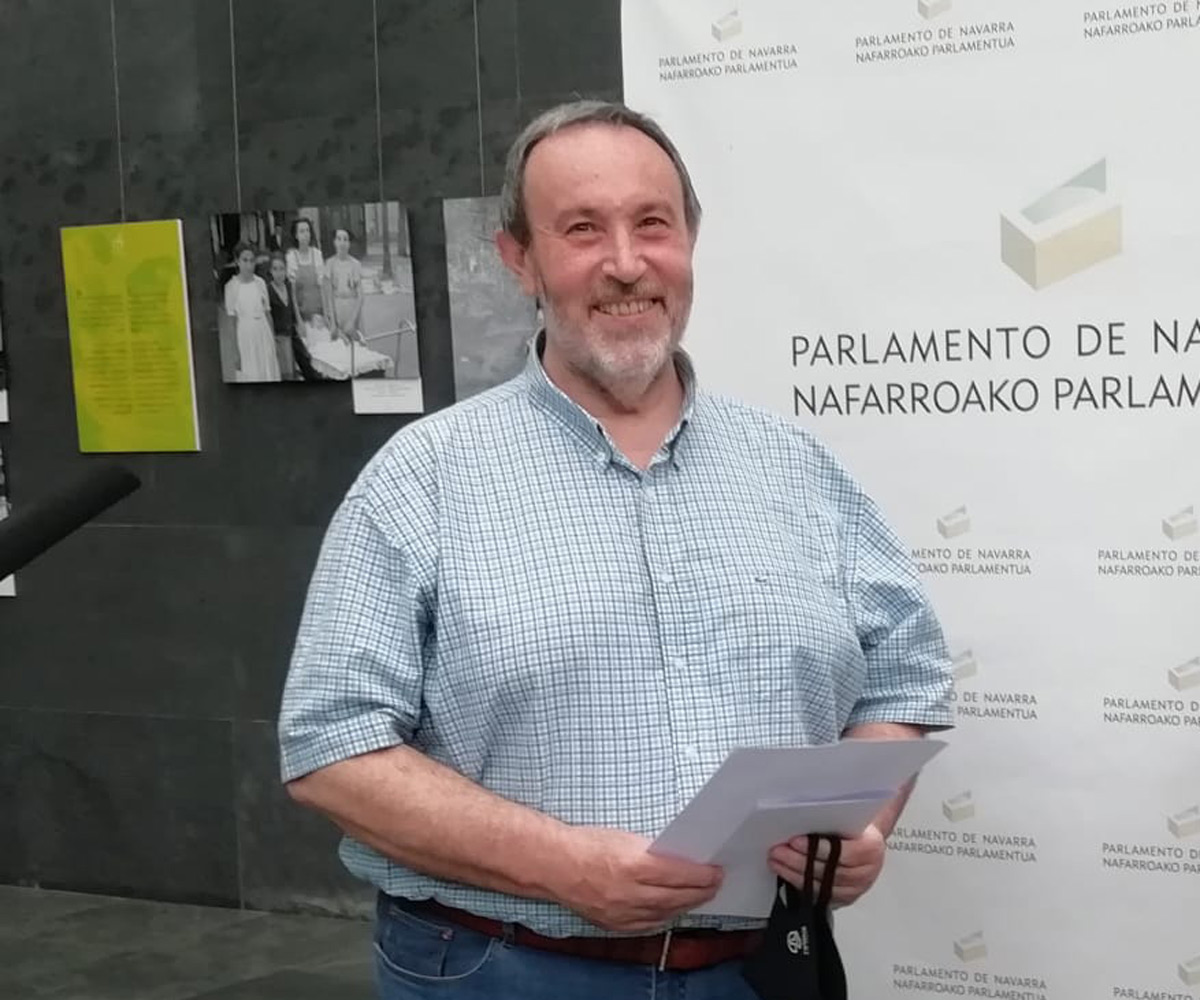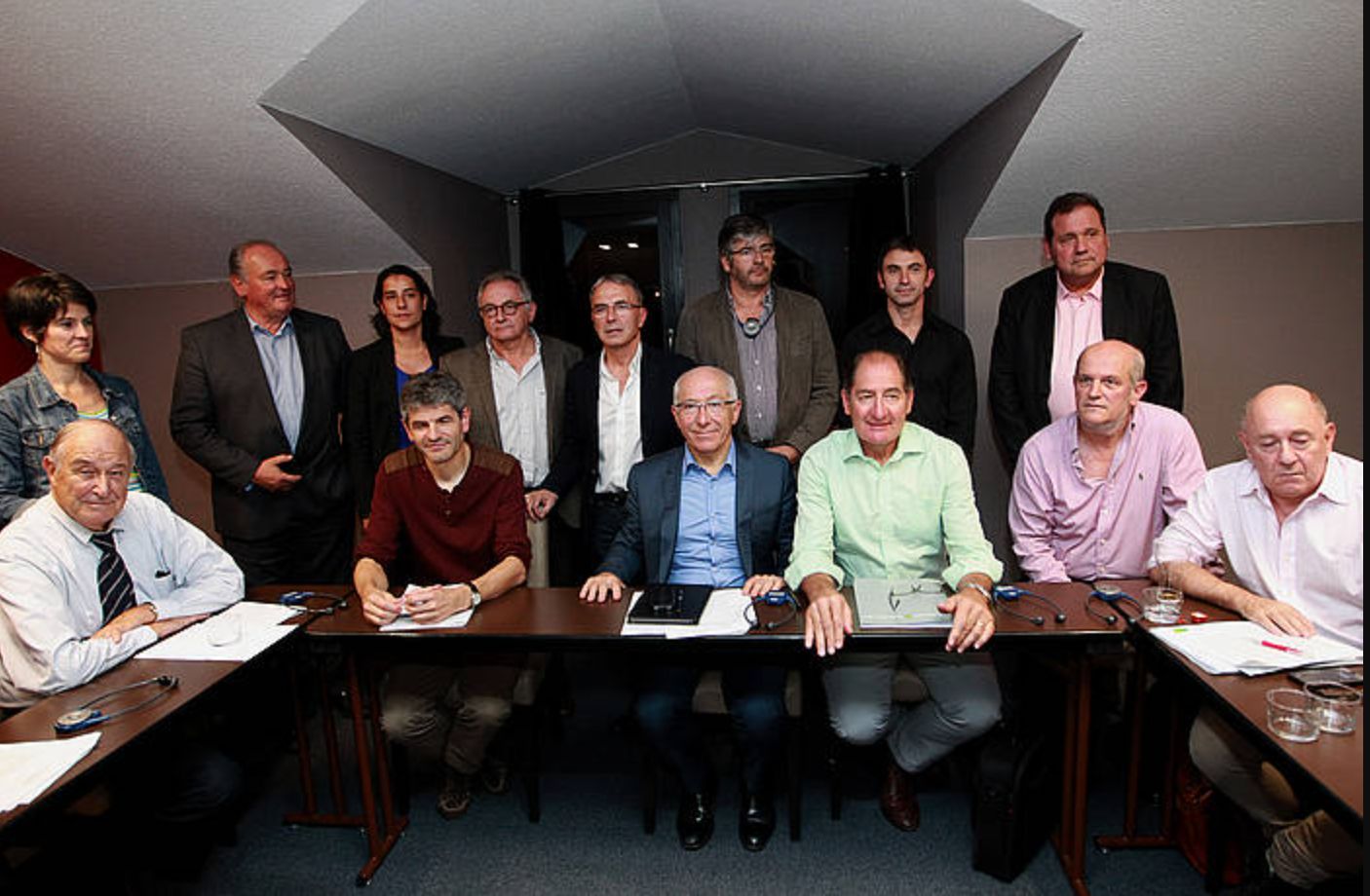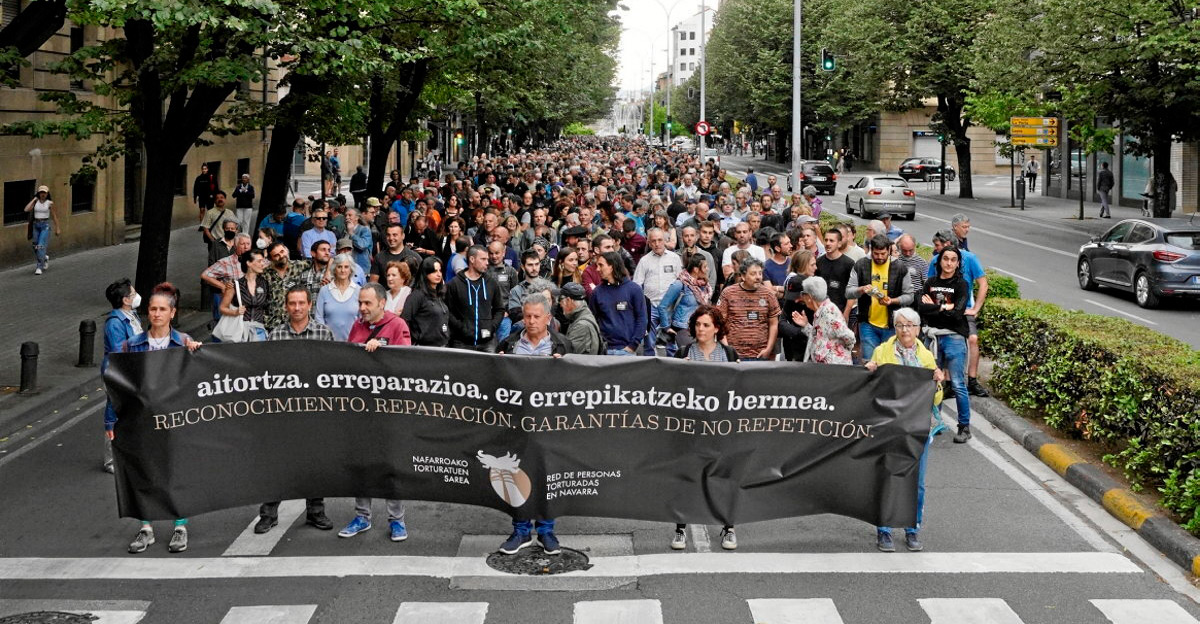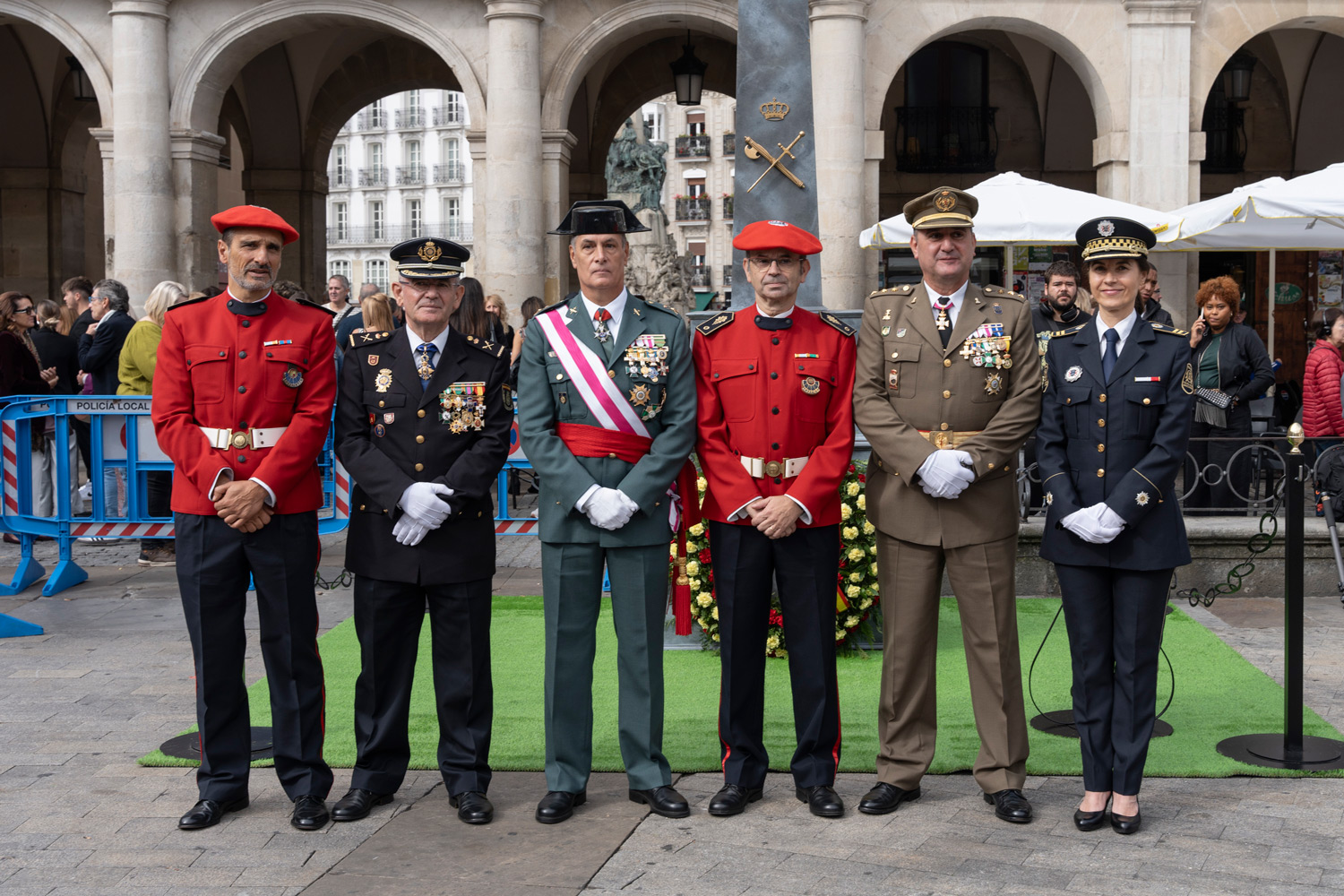"Civil guards hate us and we don't want them either."
- 11 November 1979. On the painful night, a car was shot by the Civil Guard at Etxarri Aranatz. The young Mikel Arrangi of Lakuntza was killed. Behind it is the struggle of media versions, the struggle in the villages of the street, the struggle to remake life in families. What wasn't going to happen, what happened over and over again.

Mikelen arreba, haren memoriaren zaindari bizia. 22 urte zituen neba hil ziotenean, eta haren heriotza gainean eraman du harrezkero. Herri mugimenduetako partaide gaztetandik, Amnistiaren Aldeko Batzordeetako kide, nebaren heriotzak mugimendu haietan are eta gogo handiagoz lan egitera jarri zuen. Nebari gertatua argitzeko batzordean parte hartu zuen. Bizialdia joanda ere, erretinan gordea du dena delako hura: “Berriz ikusiko banu bezala da. Eta aita, eta ama… eta Iruñeko ospitalekoa, eta Mikel han, hilda...”. 22 urteko neska gaztea zenaren oroitzapen oinazegarria, lekuko.
The death of Mikel, your brother. How many times have you counted it?
As many times as you want. & '97; Sometimes I've thought, if you'll never leave me alone! I find it hard to tell you over and over again. I also get nervous. And when the year comes, there's always pain. But, on the other hand, I want people to know the truth that when Mikel was murdered, there was no control of the civil guards, that the official version is a lie, that it's false that his car continued without stopping at control, because there was no control there anymore. We have testimonies, from people from Etxarri Aranatz, who saw it. A shot went into the kitchen of a house!
You had seven brothers at home, in the Tomasenea, in Lakuntza. Mikel was the third at the age of 32. The smallest of the house, you, 22 years old, and you have been touched by the custody of memory… By then,
three married sisters lived outside. They also had their children. Another brother was in military service… The day Mikel was killed was Saturday, one in the morning, apparently. I was at home. It's also surprising, because we were always out, but that day we weren't. I was in bed. The people came. Karlos Zurunbai, Apala, Rosario… This, for example, was our father’s cousin, had a bar in the village… They came to our house throwing stones at my window. They wanted to go down without awakening my parents. And I went down. My brother Santiago also listened to him and came down. And they told us.
That Mikel was dead?
No, he wasn't dead. They didn't know that. We were told that the civilian guards put control at Etxarri Aranatz, who threw the shots at the car that was going to Mikel, who had injured Mikel and put him in an ambulance and took him to Pamplona, to the hospital. In the end, my father had also heard something, but we didn't tell him everything, but Mikelek-eta had suffered an accident, which was not serious, but which we went to the hospital in case. “Quiet estate, dad, it hasn’t been anything.” And he believed, poor, and went back to bed.
And you to Pamplona…
Yes. Two cars. In one, Santiago my brother and Apala, the friend of the house. On the other, Karlos Zurunbai and I. So I don't know when we would arrive at the hospital, two and a half of the night as well… We had to get into the hospital and, first of all, wait. I don't even imagine Mikel was dead! Until the doctor arrives. They tried, but they couldn't get Mikel back. Santiago reacted immediately, filled the tears. I was in shock. I couldn't say anything. I remember, though, that he came from funeral services, but I don't know what he asked me. I don't know if I answered anything. I was in Schock. Then I remember people coming from the town, who along with Mikel were city council councillors and others. Then we learned that Mikel was the month of the hour to Pamplona by indication of the conductive ambulance...
Where were those who were driving with Mikel?
After shooting the car, the civil guards had everyone go out, lie down on the ground, and keep them there under the threat of the crutches. “But Mikel is inside, he is wounded, Mikel is wounded!” said José Luis. “I’m leaving, I’m leaving! Mine has gone!” said Mikel, dying. Our brother was shot and shot. The shots and people of Etxarri Aranatz were also criticized. During this time, an ambulance appeared. It came from Pamplona, on the lap. To stop him, to get Mikel to the ambulance and go to Pamplona. They say that those who were in the car took them to the barracks to testify.
To my father you would have to tell the whole truth, to my mother
too… That was the other! Fathers and mothers! My mother was sick, she was epileptic, and she was altering anything. Among those who came to the hospital, some belonged to Mikel's crew, and I told them to go to Lakuntza to tell their sister, Clara, who lived in the village. That he was going to tell our father. But I don't know what it was, if the crew touched the wrong door or something, the sister didn't get any message. And the next morning, when his father left the house, he saw the Ikurrina… And his neighbor, Joseph Sacristy, said to him, “But Juanito! What has it been?” Because his father knew nothing, Joseph told him that the civilian guards killed Mikel. “Go away and I will kill everyone!” my father. He knew it on the street! Then came the obligation to tell his mother and other relatives.
They say they made a complaint against the Civil Guard...
We took José Antonio Urbiola as a lawyer and went to court and filed the complaint. Then we came to Lakuntza, they opened the call for the assembly… There were Patxi Zabaleta, Iñaki Aldekoa… People came home, they supported us, and that helped us a lot. But from then on, her mother did not get her head. His life was truncated. I went into those meetings and into those sauces. They set up the committee of inquiry, and there I focused on doing what was possible. Josetxo Uribe helped me a lot! Josetxo and Mikel, both councillors. They had a lot of illusion to do things differently.
He entered the committee of inquiry...
Yes. I had to have done something, and that's what I did. And it did me well. Josetxo Uribe, a Alberdi who worked in the cooperative of Sakana, of ESB, myself… We did research, collected testimonies, consulted the press, told what happened. We have produced an appropriate dossier. They have now made a book, they have researched more, but that dossier has been the perfect basis for the work. Doing that work helped me a lot. On the other hand, we felt that at home we had the support of the citizens. It was no greater than the help that the people gave us.
The support of the citizens in Lakuntza, the monolith in memory of Mikel in Etxarri Aranatz, the repeated
attack… Yes, that too. At first, when we went to put the monolith, for example, there was the civil guard, putting us in. Those of us who were there took us to the barracks. And the lieutenant told us, correcting us. “You and you, I have seen you many times here!” We had permission from the Etxarri-Aranatz City Hall, but that doesn't matter to the civil guards. They were annoying. In addition, Mikel was killed at the height of the barracks and the monolith on him. Three years later, however, all the civil guards moved to Alsasua, and we were more reassured, because otherwise they did nothing but get us in.
The bats against the commemoration were also several…
Yes. In 1981, the trilite was placed and the base of the monolith was broken. It was early this year. Later, on Pillar Day, the monolith was torn down. Two years later, fifteen days after the new decomposition of the monolith, he cracked again with the gom-2 pump. Then, when the civil guards left Etxarri Aranazti, the City Hall built a new plaza there and gave it the name of Mikel. The monolith was then placed with a plate. He was also attacked... and it goes on. It would take a long time to count all the attacks.
Gines Cecilia Rico’s name was the one who killed Mikel by the civil guard… He was the one who shot Mikel to death, but we don’t know, because they
fired several shots. You just have to see the pictures of the car. I saw her at the trial. He was a kid. I was 23 years old, my same age. Two civilian guards were charged. One was asked for a small two-year arrest, to pay for car repairs, and to compensate the family. To the other nothing.
The trial was...
Yes. Urbiola squeezed the civil guards terribly. I would say I had questioned three. He welcomed them tight, to highlight their contradictions… The civil guards were that they didn’t know what to say. The moment was special. Then Urbiola had to travel to Venezuela and Patxi Zabaleta took the case. I remember the trial ended and Zabaleta said to me: “You can’t do anything else, there’s no more resources.”
What would you say to Gines Cecilia Rico if you had it in front, if you came?
I would like you to look in the face. Some have also investigated that, which was from the town of El Tovar (Jaen, Spain). You know where you are. I don’t know what I could say… “Do you agree with what you did?” I don't know. I know what my father said: “This man is not going to live well from here to back. Consciousness will always be daring.” In my head I was sewn that claim of my father…
The courage of your conscience… What is your pain?
There is always the pain, never happens. It's not as present as it was at the time, but it's always there. It's been 41 years and when the anniversary is approaching -- the concern and the scandal. And the same when it's Mikel's birthday, June 4. Knot. At home we all remember Mikel's day. We put flowers in the cemetery, we remember Mikel. These two days are always there: 4 June and 11 November.
Why did that happen?At that
time the repression was enormous in this area. Civil Guard controls at any time and always. Any demonstration, any political or social claim, and the Civil Guard and the wood came! So we lived in Sakana that time. We lived under punishment. After Mikel's death there were major protests for the general strike. In the ravine there were also barricades and a great conflict, and they say that from Pamplona they also brought the Spanish police in the coming days.
Repression in Sakana… The issue of the young people of Altsasu is not entirely old.
No, that was at the 2016 trade shows. Civil guards hate us, and we don't want them either. They don't help us, we don't need them. So what are we in? They only punish us. That's why Sakanan's motto is alive. “Go over here!” Also now, when the last Friday of each month concentrates on behalf of the prisoners, they always pass through the people, not forgetting... When I see them, they make me angry, nothing else. My father taught us not to have hate, we talked about Mikel, this and we said it, no more. They're hateful, but I don't feel that hatred.
And then what was the future of the family?
His father was operated on for varicose veins. He wasn't yet old to retire, he was two or three years old, but he said no, he wasn't going to do more work, and he retired before then. Mom, I couldn't, and the family members came together to help her mother, to take care of her. We get together more to help each other. In my case, I don't know what I would have lived if they hadn't killed Mikel, but his death has totally conditioned my life.
The book has been published by the popular initiative: Remembering Mikel Arrangi. I don't know if you inherit the page... The
first thing I have to say is that we have welcomed the book very gladly at home. To me, to start with, I love it. It is curious that at that time I worked with Josetxo Uribe on the committee of inquiry, and now in the book with his son Iker! His design and layout are his own... The case is collected, there it is, for people to know, for it to be kept in writing. Mikel has a memory in Etxarri Aranatz, the street in Lakuntza, has been honored, has made a documentary, is in the badges, is now in the book… It has been very important to make popular initiatives, a work of these years to bring to the surface the pain of the victims. Naparra says it is an open case [José Miguel Etxeberria] with his book, and Mikelena, for his part, is done strictly. It's never going to be completely strict, but at least one was yes. We are very grateful to the public.
As we know, the Institutional Independence of Hego Euskal Herria has begun a certain roadmap. Signing a new pact with the Spanish State. This path uses some main variables or premises. Thus: The PSOE is a leftist party, the Spanish State is recyclable and it is up to the... [+]
“In the newsletter today at noon, you will see the mayor of your capital, offering the main plaza of the city to the military body that tortured us. In today’s information at noon, you will see the structure that murdered our friends and relatives unravel through our... [+]







